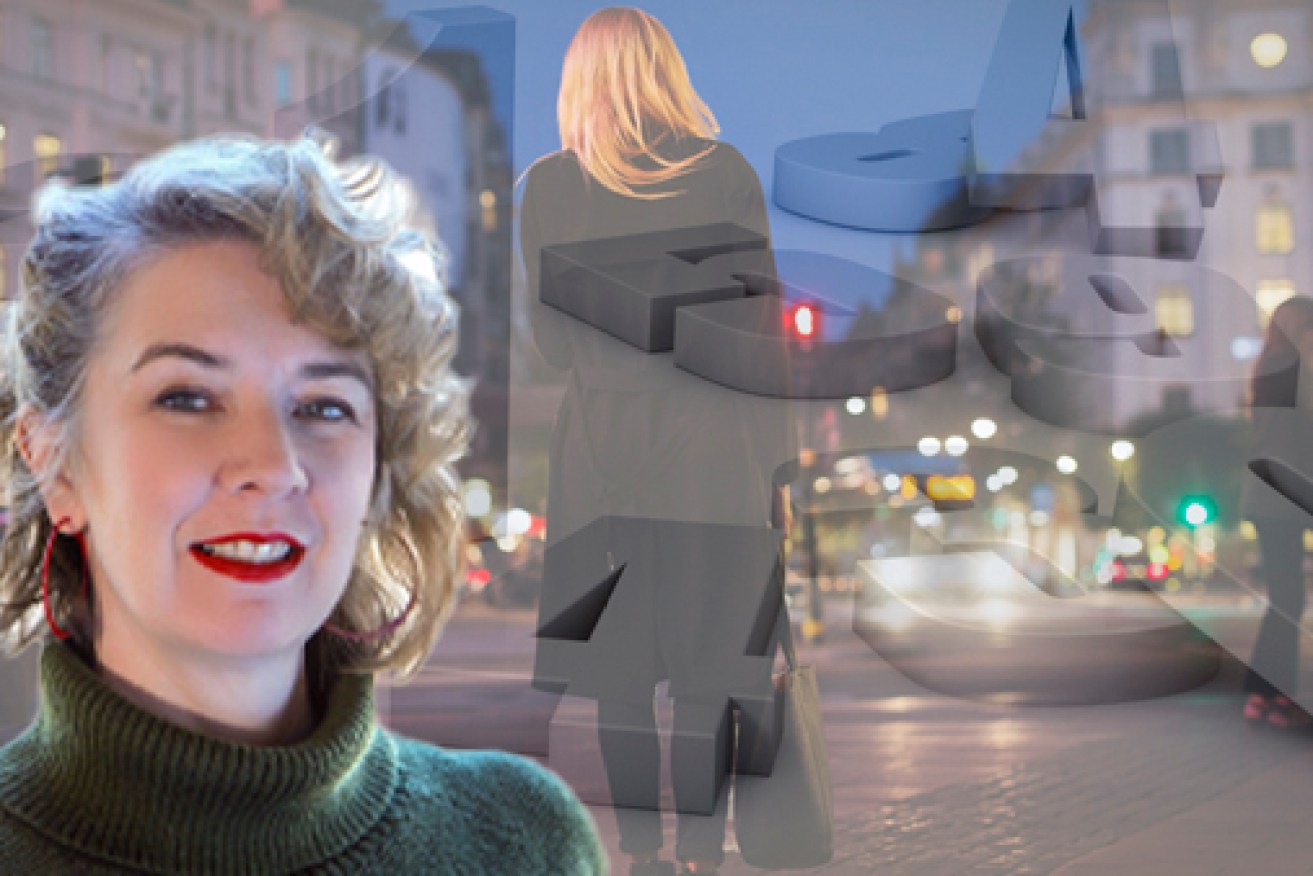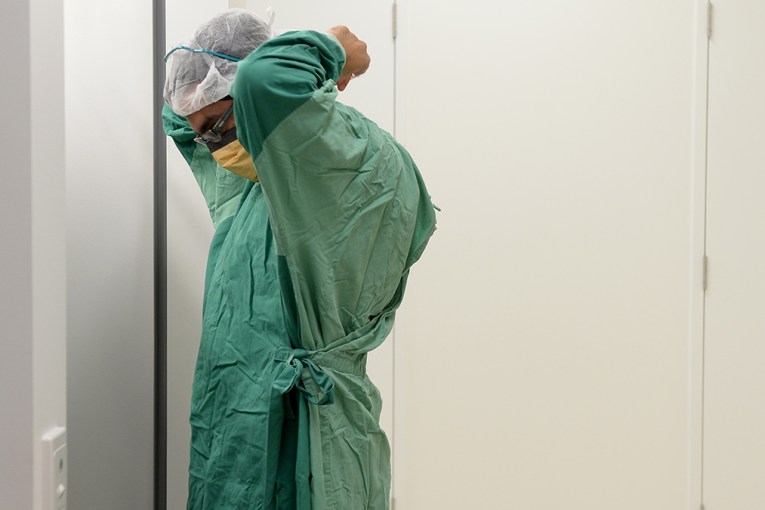Jane Gilmore: The numbers Scott Morrison just can’t seem to comprehend


Try as he might, Scott Morrison just can't grasp this set of numbers, Jane Gilmore writes. Photo: TND
There are very few women in Australia who haven’t experienced bad behaviour from men.
Put a group of women in a room and almost all have at least one story to tell – ranging from sleazy or uncomfortable through to terrifying. Even life-threatening.
The litany of claims about criminal, gross or demeaning choices made mostly by men in the Coalition parliamentary offices is now so long it’s almost difficult to keep up with them all.
The Prime Minister’s self-confessed inability to understand why so many Australian women are disgusted and enraged was frustrating, but not surprising.
He has surrounded himself with men who have little experience or interest in women’s lives.
As of Monday, seven of the 22 cabinet ministers are women, up from six after the reshuffle.
Less than 20 per cent of government MPs and less than 40 per cent of Liberal senators are women.
According to a recent ABC report, less than 15 per cent of Mr Morrison’s close advisers are women. Just having a wife and daughters isn’t evidence of asking them about their lives and listening to the answers.
Women’s stories can be a powerful way to engage public empathy, as Brittany Higgins, Grace Tame and Rosie Batty have proven, but one person’s story runs the risk of allowing men to dismiss it as an aberration, a “regrettable” incident, to be sure, but not a common experience.

Rosie Batty has been a beacon of family violence action for years. Photo: AAP
Data can be too distant from emotion to create empathy.
That is why so much journalism about men’s violence against women starts with a personal story to introduce the data, on topics such as rape, domestic abuse, sexual harassment and discrimination.
Those topics are so huge and complex they are often discussed as separate issues, siloed into their own specific areas of structural failing and life-long trauma.
But they are not separate.
All of them are interlinked, integral aspects of a continuum of violence that is woven into women’s lives from childhood to old age.
What we have is the absolute minimum data of what violent men do to women – because most of its collation relies on self-reporting.
These are also broad averages, women and non-binary people in the LGBTQIA+ community, people with disabilities and First Nations people all suffer higher rates of violence than anyone else.
Violence
Just under 40 per cent of women have experienced physical or sexual violence since the age of 15.
Sexual assault
Almost one-quarter (23 per cent) of women have experienced actual or attempted rape at some point in their lives.
Domestic abuse
Just under one-quarter of women (23 per cent) had experienced violence by an intimate partner since the age of 15.
Child abuse
One in six women were abused as a child. Estimates suggest between 4 and 36 per cent of women were sexually abused as a child.
Old age
At least 50 sexual assaults a week occur in aged care, where two-thirds of the residents are women.
Street-based harassment
Nearly 90 per cent of women have experienced at least one form of verbal or physical street harassment. For most, the first time it happened was when they were teenagers.
Sexual harassment
Eighty five per cent of women over the age of 15 have been sexually harassed at some point in their lives, and 77 per cent of those women said it has happened to them more than once.
Workplace sexual harassment
Fifty three per cent of young women (between the ages of 18 and 29) have been sexually harassed at work.
Living in fear
One in two women do not feel safe walking alone at night. Four out of five men do feel safe.

We only know the bare minimum data about the extent of violence towards women.
Sexual harassment and domestic abuse are terms we use so often we’ve almost forgotten the genuine injuries they describe.
Sexual harassment can be devastating. It’s an enforced demonstration that you are helpless and objectified by a man who is at worst malevolent or at best indifferent to the most basic thing about you – that you are a person.
And the violent acts don’t come in isolation.
A woman abused when she was a little girl, cat-called when she’s walking home from school, groped as a young woman, raped on a first date, sneered at by a colleague and tormented by her husband, can still be assaulted when she moves to aged care.
Each individual experience adds more horror to the ones before it, breeding fear of more abuse to come.
This lifetime of violence, the reality of it or even just the fear or it, is what Scott Morrison so comprehensively failed to understand.
The data that is starkly absent from all this research is how many men are perpetrating this violence.
Clearly, when the prevalence is so high, it can’t just be a few bad men raping, beating, intimidating and demeaning millions of women.
And before the NotAllMen howling starts up, no one is saying all men are violent. What we are saying is too many men are violent.
Too many women have been subjected to violence by men.
Too many women are living in fear and battling trauma because of violent men.
Too many women have lived with it since they were little children, through school, university, work, relationships, and while young women are most often targeted, old age is no protection.
Kate Ellis, former minister in the Rudd/Gillard government, released a book this week called Sex, Lies and Question Time.
The book outlines her experience and includes interviews with women from all sides of politics. She describes weaponised misogyny in Parliament, where sexual slurs and false rumours were routinely and openly used to undermine women and their professional credibility.
The book doesn’t hide that sexism exists in all parties, but she makes the point that Labor’s deliberate effort to bring equal numbers of women into the party has gone some way to changing the culture.
The dearth of women in the Coalition government comes from decades of believing that merit exists primarily in white men and it cannot be undone in one tearful press conference or a bit of ministry reshuffling.
It will take years and a level of commitment we have yet to see from the Coalition members.
Without that, there will be no real change and we’ll be marching again in a few years, carrying more signs saying “I can’t believe we’re still protesting this sh-t”.
Jane Gilmore is a freelance journalist with a strong interest in campaigning against violence against women. She also founded The King’s Tribune
- For confidential support and services around sexual assault, contact 1800 RESPECT online or by phone on 1800 737 732. If you or someone you know needs help contact Life Line on 13 11 14








